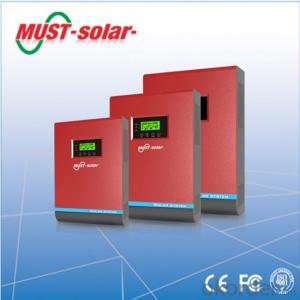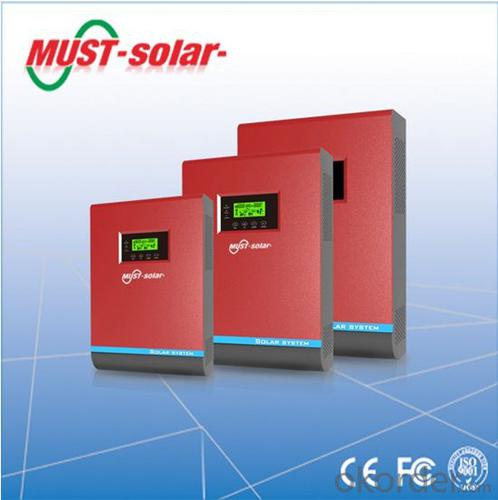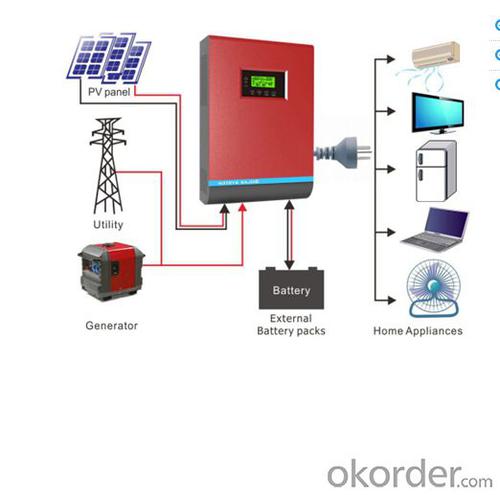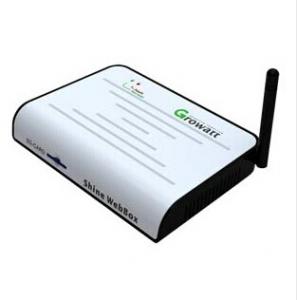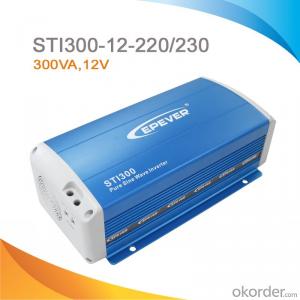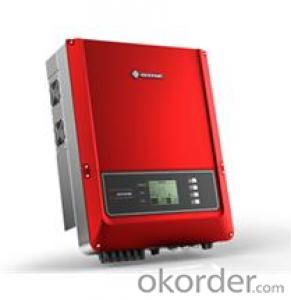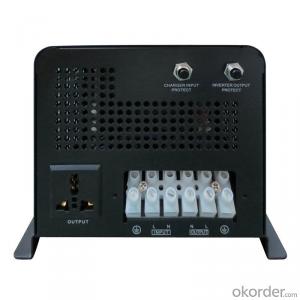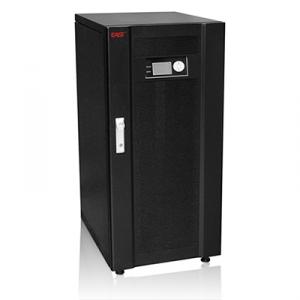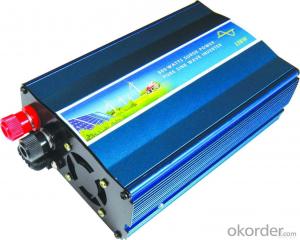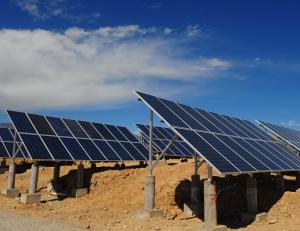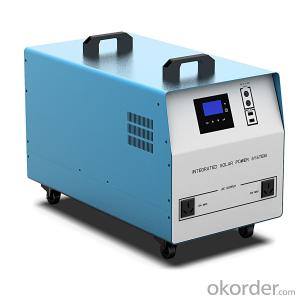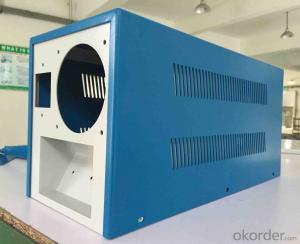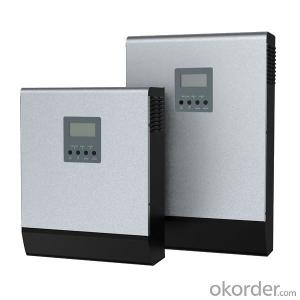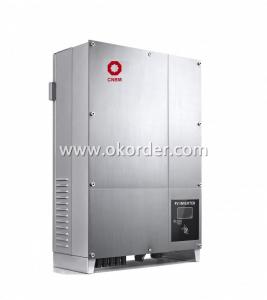Solar Inverter 1kw Off Grid 1kVA-5kVA Built-in 50APwm 60Amppt Charge Controller Parallel Function
- Loading Port:
- China main port
- Payment Terms:
- TT or LC
- Min Order Qty:
- 1500 watt
- Supply Capability:
- 3000000 watt/month
OKorder Service Pledge
OKorder Financial Service
You Might Also Like
1. Structure of Solar Inverter Off Grid 1kva -5kva Built in 50APWM 60AMPPT Charge Controller Parallel Function Description
A solar inverter, or PV inverter, or Solar converter, converts the variable direct current (DC) output of a photovoltaic (PV) solar panel into a
utility frequency alternating current (AC) that can be fed into a commercial electrical grid or used by a local, off-grid electrical network. It is
a critical BOS–component in a photovoltaic system, allowing the use of ordinary AC-powered equipment. Solar inverters have special
functions adapted for use with photovoltaic arrays, including maximum power point tracking and anti-islanding protection.
2. Main Features of Solar Inverter Off Grid 1kva -5kva Built in 50APWM 60AMPPT Charge Controller Parallel Function
• Pure sine wave inverter
• Selectable input voltage range for home appliances and personal computers
• Selectable charging current based on applications
• Configurable AC/Solar input priority via LCD setting
• Compatible to mains voltage or generator power
• Parallel operation with up to 4 units only available for PV200 4KVA/5KVA
• Auto restart while AC is recovering
• Overload and short circuit protection
• Smart battery charger design for optimized battery performance
• Cold start function
3. Solar Inverter Solar Inverter Off Grid 1kva -5kva Built in 50APWM 60AMPPT Charge Controller Parallel Function Images
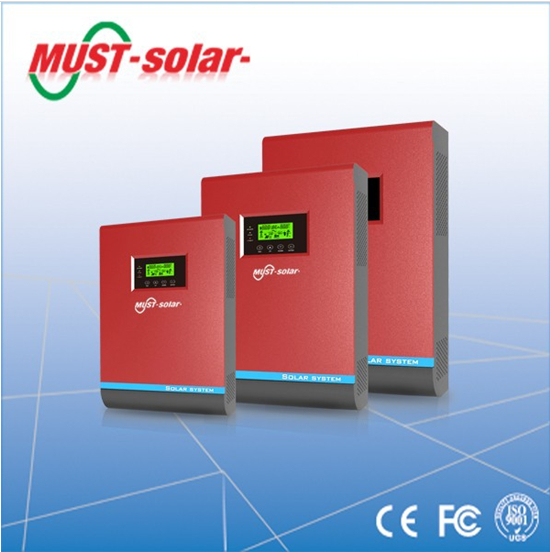
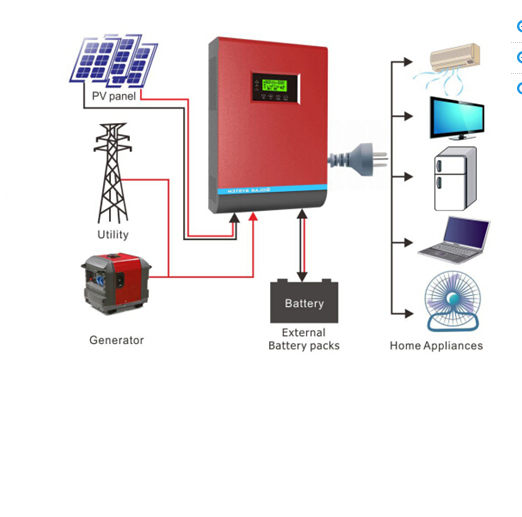
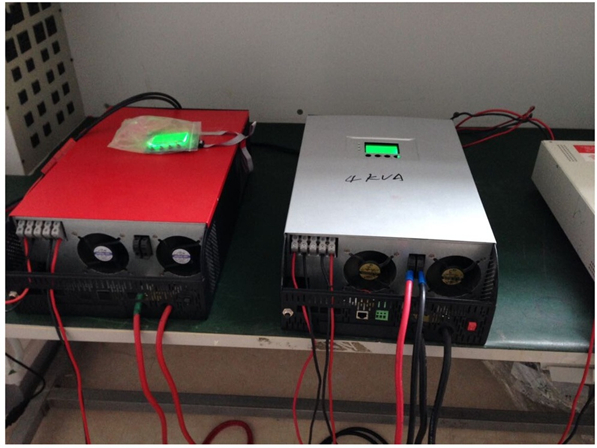
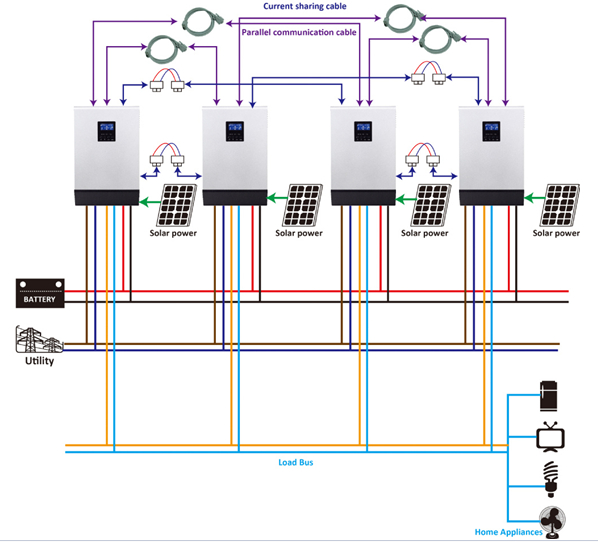
4. Solar Inverter Off Grid 1kva -5kva Built in 50APWM 60AMPPT Charge Controller Parallel Function Specification
RATED POWER | 1000VA / 800W | 2000VA/ | 3000VA / 2400W | 4000VA / 3200W | 5000VA / 4000W |
1600W | |||||
INPUT | |||||
Voltage | 230 VAC | ||||
Selectable Voltage Range | 170-280 VAC (For Personal Computers) ; 90-280 VAC (For Home Appliances) | ||||
Frequency Range | 50 Hz/60 Hz (Auto sensing) | ||||
OUTPUT | |||||
AC Voltage Regulation | 230 VAC ± 5% | ||||
(Batt. Mode) | |||||
Surge Power | 2000VA | 4000VA | 6000VA | 8000VA | 10000VA |
Efficiency (Peak) | 90% | 93% | |||
Transfer Time | 10 ms (For Personal Computers) ; 20 ms (For Home Appliances) | ||||
Waveform | Pure sine wave | ||||
BATTERY | |||||
Battery Voltage | 12 VDC | 24 VDC | 48 VDC | ||
Floating Charge Voltage | 13.5 VDC | 27 VDC | 54 VDC | ||
Overcharge Protection | 15 VDC | 30 VDC | 60 VDC | ||
Maximum Charge Current | 10 A or 20 A | 20 A or 30 A | 60 A | ||
SOLAR CHARGER (OPTION) | |||||
Charging Current | 50 A | ||||
Maximum PV Array Open Circuit Voltage | 30 VDC | 60 VDC | 105 VDC | ||
Standby power Consumption | 1 W | 2 W | 2 W | ||
PHYSICAL | |||||
Dimension, D x W x H (mm) | 95 x 240 x 316 | 100 x 272 x 355 | 125 x 297.5 x 468 | ||
Net Weight (kgs) | 5 | 6.4 | 6.9 | 9.8 | 9.8 |
OPERATING ENVIRONMENT | |||||
Humidity | 5% to 95% Relative Humidity(Non-condensing) | ||||
Operating Temperature | 0°C - 55°C | ||||
Storage Temperature | -15°C - 60°C | ||||
5. FAQ of Solar Inverter Off Grid 1kva -5kva Built in 50APWM 60AMPPT Charge Controller Parallel Function
Q1:Can we visit your factory?
A1:Sure,welcome at any time,seeing is believing.
Q2:Which payment terms can you accept?
A2:T/T,L/C,Moneygram,Paypal are available for us.
- Q: Can a solar inverter be used for off-grid systems?
- Yes, a solar inverter can be used for off-grid systems. In fact, it is an essential component of off-grid solar systems as it converts the DC (direct current) electricity generated by the solar panels into AC (alternating current) electricity that can be used to power household appliances and other electrical devices.
- Q: How does the input current rating affect the performance of a solar inverter?
- The input current rating of a solar inverter affects its performance by determining the maximum amount of current it can handle from the solar panels. If the input current rating is too low, it may limit the amount of power that can be converted and fed into the electrical system. On the other hand, if the input current rating is too high, it may lead to excessive heat generation and potential damage to the inverter. Therefore, selecting an appropriate input current rating is crucial for optimal performance and efficient energy conversion of a solar inverter.
- Q: Can a solar inverter be used with solar-powered air conditioning systems?
- Yes, a solar inverter can be used with solar-powered air conditioning systems. The solar inverter is responsible for converting the direct current (DC) generated by the solar panels into alternating current (AC) that can be used to power various electrical appliances, including air conditioning units. By connecting the solar inverter to the solar panels and the air conditioning system, the generated solar energy can be efficiently utilized to power the AC system.
- Q: Can a solar inverter be used with different tracking algorithms?
- Yes, a solar inverter can be used with different tracking algorithms. Solar inverters are designed to convert the direct current (DC) produced by solar panels into alternating current (AC) that can be used to power electrical devices. The tracking algorithm is responsible for optimizing the solar panel's position to maximize energy generation. Different tracking algorithms, such as fixed tilt, single-axis, or dual-axis tracking, can be implemented with a solar inverter to adapt to different solar panel orientations and environmental conditions.
- Q: Can a solar inverter be used with both AC and DC power sources?
- No, a solar inverter is designed to convert DC (direct current) power generated by solar panels into AC (alternating current) power for use in the electrical grid or to power AC appliances. It is not intended to convert AC power into DC power.
- Q: How does a solar inverter handle variations in solar panel tilt and orientation?
- A solar inverter handles variations in solar panel tilt and orientation by continuously monitoring the output voltage and current of the solar panels. It then adjusts the power conversion process to optimize the efficiency of power generation based on the tilt and orientation of the panels. This ensures that maximum power is extracted from the solar panels regardless of their position, allowing for optimal energy production.
- Q: What are the different types of solar inverters available?
- There are several types of solar inverters available, including string inverters, microinverters, and power optimizers.
- Q: Are there any safety risks associated with solar inverters?
- Yes, there are potential safety risks associated with solar inverters. These risks can include electrical hazards, such as electric shock or fire, especially if the inverter is not installed or maintained correctly. Additionally, there is a possibility of arc flash incidents and potential exposure to high voltage DC electricity. It is important to follow proper installation and maintenance procedures, as well as adhere to safety guidelines provided by manufacturers and professionals, to mitigate these risks and ensure safe operation of solar inverters.
- Q: What is the difference between a grid-connected inverter and an off-grid inverter? What are the advantages of a hybrid inverter?
- Offline generally need energy storage, not to send energy to the Internet. Grid has no right to interfere.
- Q: Can a solar inverter be used with different types of energy management systems?
- Yes, a solar inverter can be used with different types of energy management systems. Solar inverters are designed to convert the direct current (DC) generated by solar panels into alternating current (AC) that can be used to power various electrical devices. They are compatible with different energy management systems, including grid-tied systems, off-grid systems, and hybrid systems. The inverter's main function is to ensure the efficient and safe conversion of solar energy, regardless of the type of energy management system it is paired with.
Send your message to us
Solar Inverter 1kw Off Grid 1kVA-5kVA Built-in 50APwm 60Amppt Charge Controller Parallel Function
- Loading Port:
- China main port
- Payment Terms:
- TT or LC
- Min Order Qty:
- 1500 watt
- Supply Capability:
- 3000000 watt/month
OKorder Service Pledge
OKorder Financial Service
Similar products
Hot products
Hot Searches
Related keywords
